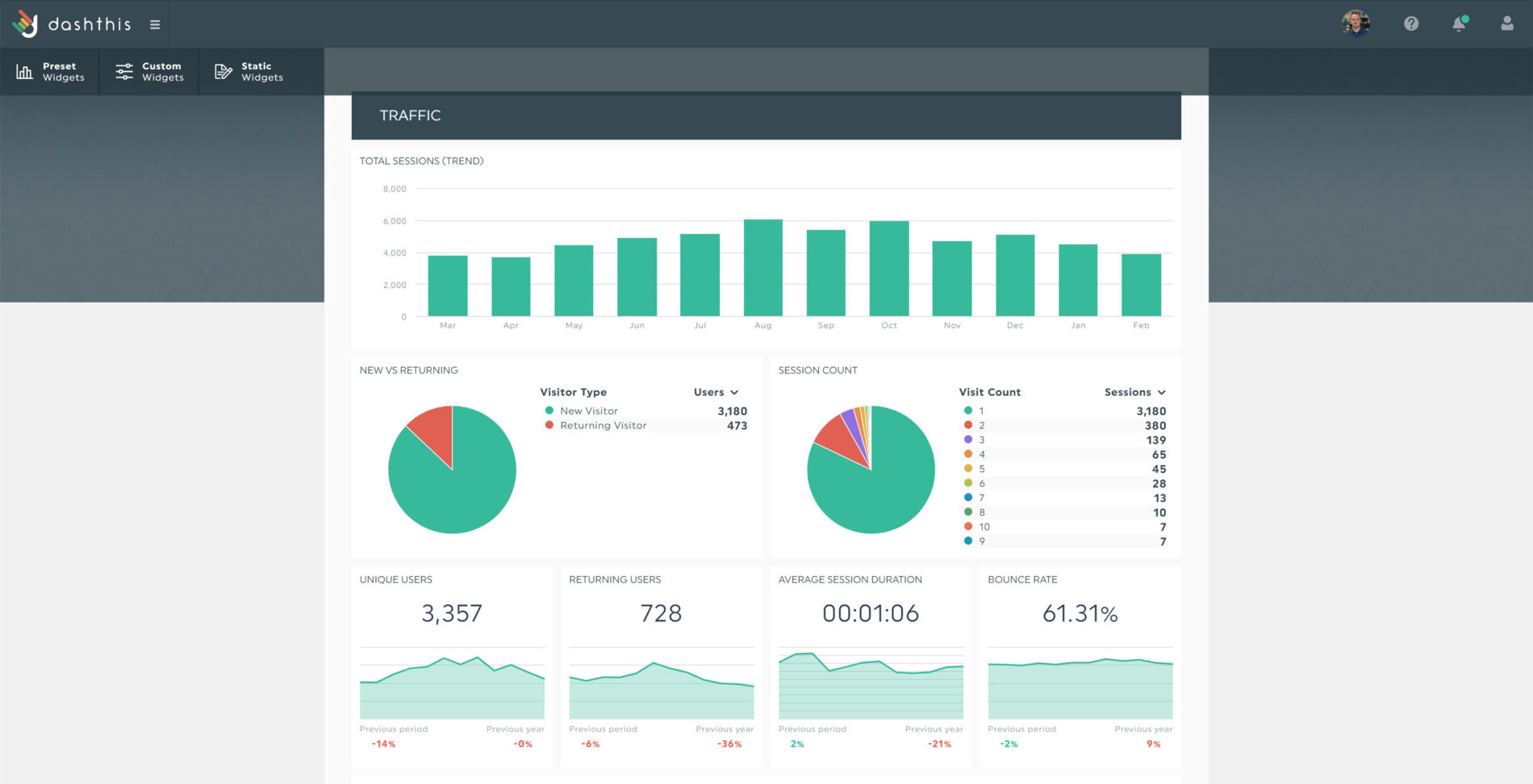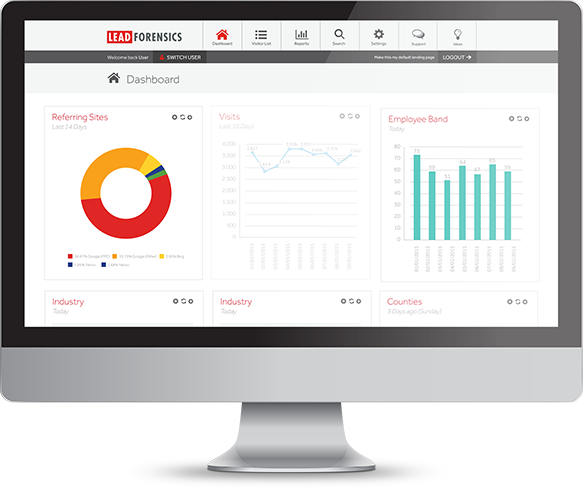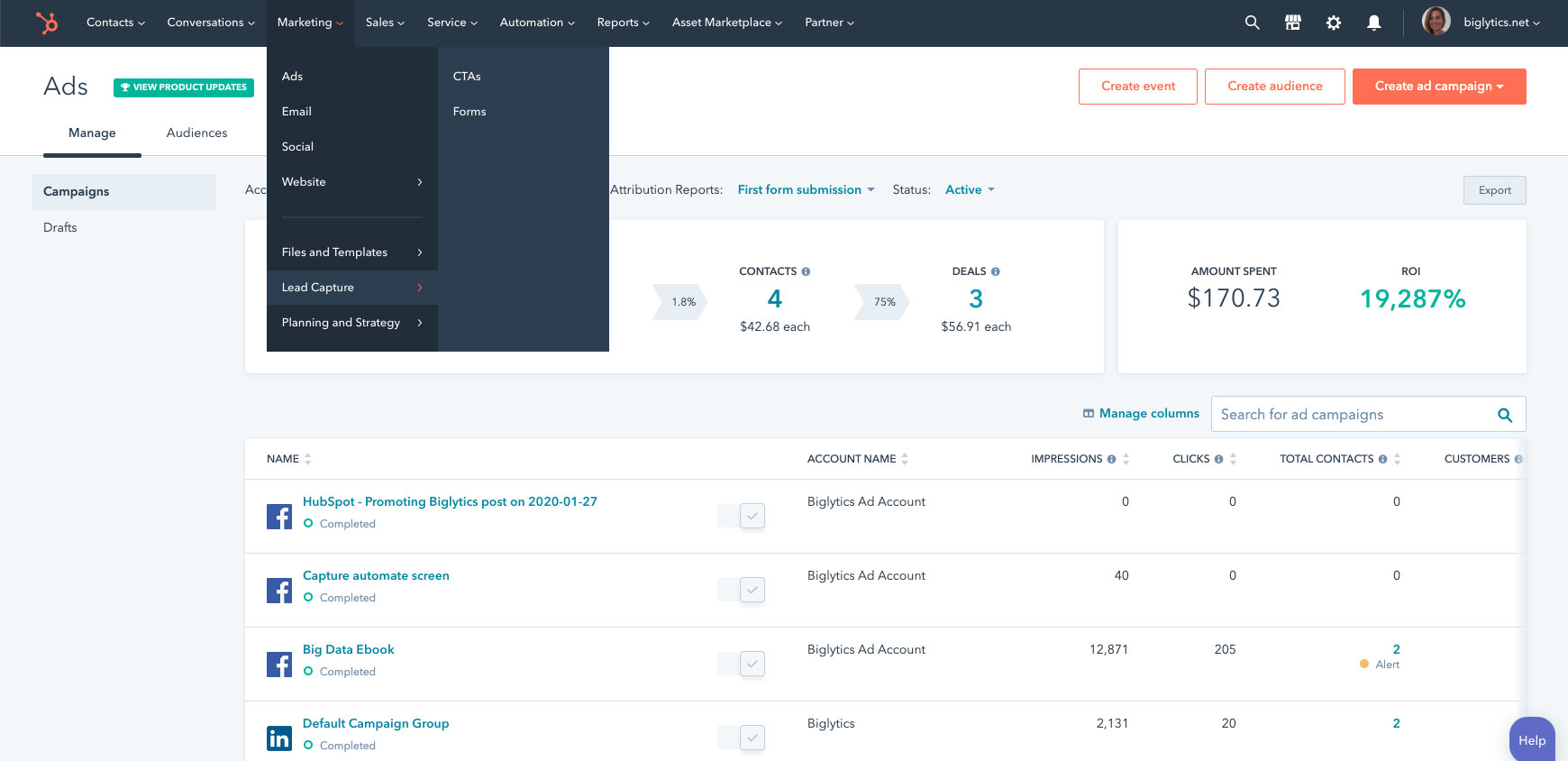
If you have a company website, you are sitting on a goldmine of website data that you may not even know you have.
Most companies know about Google Analytics, the free, go-to tool to check website data. Google Analytics is powerful and can provide important insight into who is coming to your site and from where. However, many companies want to know more about their visitors, like how big their company is, or if they fit the mold of your “ideal customer.”
Unsurprisingly, there’s a whole other world of website data out there that can be gleaned with the right strategy and tools. And, there are plenty on the market to research and test in order to find your favorite. At Echo Design Group, we have our own favorites and here is a short list of tools we have used for clients. We highly recommend them to any company looking to go beyond Google Analytics for the information they need to streamline their analytics or pursue their prospects more aggressively.
Dash This

DashThis is a tool that does the menial work of gathering website data from different tools into one place. We use it to provide clients a better understanding of their Google Analytics data as well as their social media, SEO and PPC data. The tool pulls all the KPIs you need into an all-in-one automated marketing report.
DashThis provides an integrated dashboard with information from 35 different applications (including social media and eblast platforms, PPC campaign monitoring, etc.) so clients can easily see the hot spots that are attracting their particular target markets. They can then determine where best to focus their marketing efforts and make smarter, data-driven decisions about where to spend their marketing dollars.
Lead Forensics

Lead Forensics helps you race to the prospect with a robust, reverse IP-technology that captures specific information about website visitors in real-time. The company bills itself as a “turbo-charged” lead generator by turning anonymous visitors into qualified leads with immediate information not only on the site visitor’s contact details but also demographics, search behavior, and financial data. The additional information can be used to help customers focus on the best leads and prioritize follow up and other marketing efforts.
Lead Forensics saves companies time and money by providing the data that companies need to deploy the best marketing strategy for each customer. They also provide a lead score based on multiple criteria and have other convenient features such as instant notifications, auto-assigning of leads to the team, and enhanced modules to measure digital ROI.
For some companies, it gives them a second shot at capturing a customer that did not convert. For others, Lead Forensics gives them access to people in a company that they would otherwise not have, as well as a wider and/or deeper lead pool.
Hubspot

We are big proponents of Hubspot, a leading marketing automation tool focused on analyzing a company’s inbound marketing efforts, or the content that a company self-publishes and the resulting website traffic it creates. Hubspot effortlessly measures your content’s performance and tracks client and prospect activities based on your inbound marketing efforts. They also allow you to manage your social media, blog platform, chat features, and ad tracking and monitoring within one comprehensive system.
One of the distinctive things Hubspot does is help companies make important, analytics-based decisions about their content marketing. The tool helps answer questions like “What kind of content does my audience look for? Respond to?” and is designed to help you see exactly how your prospects are interacting with the content you publish.
Hubspot also attempts to personalize the consumer’s user experience with your website by personalizing visits and serving customers the information they desire most. In essence, Hubspot allows you to give every lead and customer personal attention, and access to the content that will most likely convert them into a paying customer. In short, their analytics make you more intelligent about what you say and how you say it to the customers you most desire.
Choosing the Tool For You
The rationale behind any kind of analytics tool is to make a company more savvy about their customers and prospects, and how best to present their goods and services to them. After you get your startup the perfect tool, it’s time to carefully consider what information you need to have to more effectively reach your audiences. Make a list of your “most desired” analytics and be clear about how such data will fit into and make a difference within your overall marketing strategy. Taking these steps will help you vet the numerous tools out there and find the one that will suit your company and your needs best.
In the meantime, if we can ever help you with your marketing efforts, including content, strategy or analytics, please don’t hesitate to contact us.


